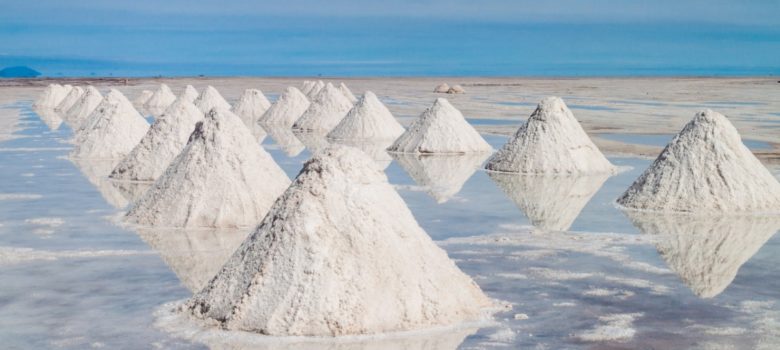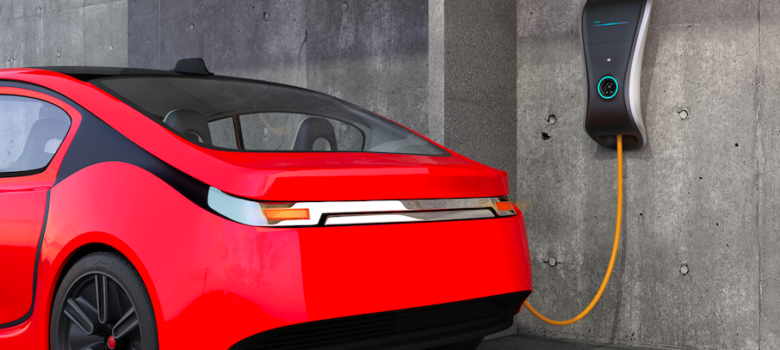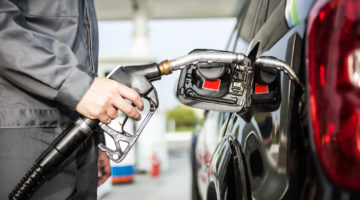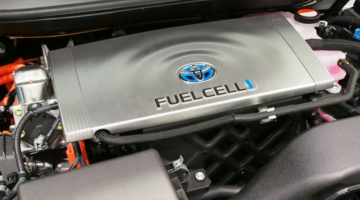
With an explosion in the number of electric cars being manufactured and sold, rumours are spreading that global lithium supplies will not be big enough to cope with demand. But how true are the scare stories?
The electric car revolution
At the moment, the vast majority of car batteries are made using lithium. Lithium ion batteries are smaller and more efficient than alternatives. If lithium were to become scarce, it would eventually threaten the production of electric cars, and push up prices in the meantime.
The mass-production of electric vehicles has been halted for a long time by an insufficient supply of batteries. While there were not many batteries being made, it made the electric cars prohibitively expensive. However, this has changed recently with projects like Tesla’s Gigafactory, and other large factories. More and more people are investing in lithium mining companies, as their value continues to climb.
The falling price of electric cars has led to a huge rise in the number of EV drivers; ownership has now reached 2 million for the first time. Several of the biggest car manufacturers have very recently announced their move to all-electric and hybrids by 2019 – so batteries are soon to be in demand on a totally different scale.
Some of those opposed to the wider adoption of electric vehicles have been keen to spread speculation of a supposed lithium shortage. Opinion is split – even among experts – as to whether this is true. You could point to the fact that some of the doubters (such as petrol and diesel car manufacturers) have ulterior motives; but the fact stands that lithium is finite resource, and it will run out at some point.
Elon Musk has tried to allay fears by saying that lithium is only the ‘salt on the salad’ in Tesla‘s technology. Lithium makes up around 5% of the materials in some car batteries. However, although it is not needed in vast quantities, it is definitely needed!
Will we run out of lithium?
The current global reserve of lithium is hard to determine, but has been estimated at between 18-40 million tons. To put this into context, there’s around 63kg of lithium in a 70kWh Tesla Model S battery pack. With an estimated 1.2 billion cars in the world, even if everyone were to go electric (which is a long way off yet!), it would take years and years to run out of lithium. Whether or not we can extract enough quickly to meet sudden demand – whilst being mindful of the environmental consequences – might be the real issue. Lithium mining can be blamed for both the depletion and pollution of groundwater.

As well as the potential of finding new stores of lithium, research into new types of battery could eventually lower our reliance on the metal. Although moving at a slow pace, battery technology is developing all the time, with the race on to invent the most efficient, affordable battery. It’s possible that in future years, lithium ion could be on the scrapheap anyway!
In the meantime, there’s no real reason at the moment to think the take-up of electric cars will be stilted by a lithium shortage – at least, not for a long time.
Think we missed something? Do you have a different opinion?
Comment below to get your voice heard…













40m tons is the world’s reserve. 1.2 billion cars on the road. 63kg in a Tesla, so roughly 15 Tesla’s per ton or 600,000,000 (600m) can be made with 40m tons of lithium which is half of the number of cars on the road today, so if everyone went electric, how is it that it would take “years and years” for the lithium to run out?
Especially when you know that the reserves in 2020 are far from being 40 Millions according to the United States Geological Survey but 17 Millions only that are worth being exploited. Even with the ressources being closer to the 40 Millions, it doesn”t mean the extraction of these 40 000 000 tons is possible today.
Thanks for actually doing the math. As soon as I read “years and years” I remembered liberal progressives don’t like using actual numbers because facts tend to override their narrative.
have a good hard think about it and you’ll realize that most maths and facts were derived by people who you’d classify as “liberal”
Because of the time taken for the 1.2 billion cars to be swapped over! No car company is producing electric cars at the rate of petrol cars. The shift will be gradual – hence ‘years and years’
That isn’t what you said though, is it? You said we could replace them all and still have some left over. And you also don’t take into account everything else that uses lithium,
If everyone swapped to electric we would run out of lithium. The proposal for everyone to swap to renewables involves batteries as well. In other words: the green revolution is not possible,
Petroleum also takes “years and years” to run out. :O So how I project the future will be like, the whole world will not be fully electric. Some fuel cell, some electric, some hybrid 🙂
As usual the antis are expecting green tech to be perfect and to reject it in favour of a far less perfect status quo as a consequence. Imagine how they would have laughed had someone pointed out to the inventors of the internal combustion engine that the supplies of oil are limited and so we had better not bother developing a motor car industry! The point is that there are enough reserves to keep us going for a long time with great expansion in the EV market and every EV on the road will reduce carbon emission and pollution thereby saving lives.
“every EV on the road will reduce carbon emission and pollution thereby saving lives” Really? Have you ever compared the carbon footprint of the manufacture of an EV vs combustion engine vehicle? And let’s not talk about the environmental and ecological damage of lithium mining. CO2 is not the enemy! Plants thrive on the stuff and we need plant life to exist. The only long term solutions lie with hydrogen and nuclear power.
We’re not expecting it to be perfect. Just for an honest telling of the story. There’s enough lithium, by their own numbers, to build somewhere between 250,000,000 and 500,000,000 Teslas. That’s a LOT of cars, but they suggest that 1.2 billion wouldn’t be a problem despite that being more than double the possible number of battery packs.
And yes, supplies of oil are limited. But ‘limited’ in that sense means ‘comfortably running everything for decades, and for decades more’ rather than ‘cannot quite replace half of one major consumer’.
The green movement should be honest with themselves and with others- to do otherwise just leads to frustration, disillusionment and to the whole movement looking like liars and frauds. Green tech deserves better than that.
Fossil fuels replace themselves over time, oil comes from decomposing plants and animals over time. What they dont tell you is carbon is not the reason the Earth is heating up but the excuse for a transfer of wealth. Suns solar system causes the increased heat as its in a rotation cycle. EV metals pollute groundwater and once they are gone they are gone, to never comeback, when you strip those metals off the ocean floor what is going to happen?
The problem with this article is “years and years” means what? Here are some “real numbers”. 50% of the worlds Lithium is crucial for the manufacturing of a vast array of other products (Google it). So with the US Geological Survey (acknowledged as the best source in the world (used by the CIA incidentally) saying the global reserves are 16-18 million tonnes (metric), That means 8-9 million tonnes available for the top of the line Tesla Power Wall Battery for cars. Bottom line:5% of the global car fleet will be the maximum EV penetration as of today’s fleet size of 1.4 billion vehicles.
In 20 years the fleet will be 60% larger. Therefore the insane concept of no ICE cars by 2050 is remarkably stupid by the green movement (who by the way are appreciated) P.S. You cant make cells phones without Lithium. The future of mankind rests upon a new source of energy (not discovered yet) and planting trees to suck up the C02 from hydrocarbons and replacing coal with gas. Wind and solar are great as well but you can’t store the energy. One barrel of oil has the equivalent energy storage of 7 tonnes of Tesla batteries.
Funny how this article talks only about cars using Lithium ..did you forget Phones, laptops and Tablets and today and for the last 2 decades, people want more portability and more power, we have seen a wide range of products go Lithium powered as more gadgets are added everyday than ever and growing fast. Did you forget the drone consumer explosion also using this source, internal home cells as alternative to electric power, boats…..the military and civilian devices etc . Name a product today ..and you will find it in a lithium power version. So I don’t think we have years and years
Your math is off. There isn’t even enough lithium for half of the world’s cars.
The future is obviously going to be a mixture of energy sources and storage. No one above has mentioned hydrogen. It’s the most plentiful element in the universe by a long way. We can never run out of it and using it recycles it. It’s easy to store. It can be produced fairly cheaply by solar power produced electricity. Hydrogen vehicles are usually hybrid but use less lithium than purely electric ones.
In all the articles I have read on this the math focusses on [Li reserves]/[Li pr EV] = Total EVs. But this is flawed because there is already a massive demand for Li in the form of household batteries (for remote controls, toys, etc).
Also, noone mentions the other rare elements such as cobalt and manganese. Also, copper is going to be in high demand to bolster the electricity distribution infrastructure that is going to be required to handle peak energy flow when people charge their EVs after getting home from work.
When the Li is gone it is not going to ‘respawn’. If the world is reliant on LiPo batteries that are degrading and cannot be replaced things are not going to be good.